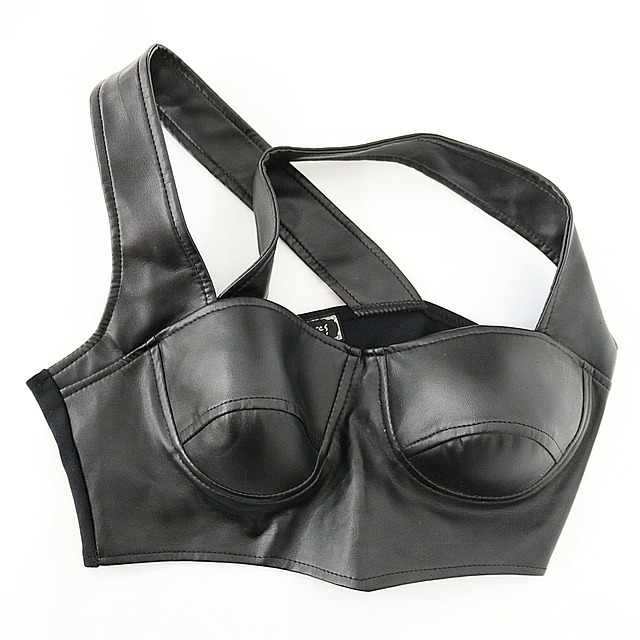Sustainable Women’s Underwear in the UK 2025: Quality, Fairness, Inclusive Sizing, and Eco-Friendly Materials
Sustainable women's underwear available in the United Kingdom in 2025 reflects developments in eco-friendly materials, ethical production, and inclusive sizing, ensuring comfort, durability, and support while minimizing environmental impact. The market increasingly embraces innovative fabrics, fair labor practices, and diverse designs to cater to all body types and preferences.

High-Quality Sustainable Materials Safe for the Skin and Planet
Sustainable underwear brands in the UK prioritise natural, certified materials that support both human health and environmental responsibility:
- Organic Cotton: Many brands use GOTS-certified organic cotton, grown without synthetic pesticides or fertilisers. This naturally breathable and hypoallergenic fibre also uses significantly less water than conventional cotton.
- Regenerative Fibres: TENCEL™ Lyocell (derived from sustainably managed wood), bamboo viscose, and hemp provide moisture-wicking, soft, and breathable qualities that enhance comfort while supporting replenishable resources.
- Chemical-Free Processing: Sustainable brands avoid “forever chemicals” such as PFAS. Instead, they use OEKO-TEX® certified dyes and materials free from heavy metals and other toxic substances.
- Innovative Compostable Options: KENT’s 100% compostable underwear made from organic Pima cotton demonstrates zero-waste garment design and fully biodegrades in soil within 90 days.
Broad and Inclusive Sizing for Every Body
Inclusivity is a key component of sustainability. Ethical underwear brands in 2025 acknowledge diverse body shapes with extended size ranges:
- Sprout Organic: UK 4–30 (XS–4XL)
- Y.O.U: UK 6–20 (S–3XL)
- Nudea: UK 6–20 (S–3XL)
- Thunderpants: UK 4–27 (US 0–23)
- Pact: up to XXXL (advised to size up due to smaller fits)
Additionally, brands such as TomboyX offer gender-inclusive sizing and specialized designs (including period-friendly and tucking underwear) to support a broad range of identities and needs.
Ethical and Fair Production Practices
Sustainability extends beyond materials to fair and responsible manufacturing practices:
- Many brands work with Fairtrade-certified factories, ensuring fair wages, safe working conditions, and social benefits for workers.
- Examples such as Y.O.U’s India factories provide meals, healthcare, and education for employees and their families.
- Localised production (e.g., Araks in New York and PROCLAIM in Los Angeles and Europe) helps reduce carbon footprint and supports local economies.
- Brands often hold certifications such as B Corp, WRAP, Fair Trade, and PETA-Approved Vegan, indicating their commitment to social responsibility and animal welfare.
- Several brands also implement zero-waste or circular production models, including take-back programmes (e.g., Subset’s recycling programme that gives 20% off for returned underwear).
Design for Comfort, Durability, and Long-Term Use
Sustainable women’s underwear is designed for daily comfort and long-term wear:
- Designs minimise irritation and avoid riding up or bunching.
- Elastane blends are used for supportive stretch without compromising breathability.
- Specialty options like maternity and period underwear enhance functionality across life stages.
- Multipack formats and varied styles (e.g., briefs, thongs, hipsters, boxers, bralettes) enable conscious purchasing decisions over fast-fashion consumption.
- Durability is prioritised — customers frequently report that these garments retain their softness and shape after many washes.
Accessibility and Pricing
Sustainable underwear in the UK offers a balance between quality and affordability:
- Prices typically range from £12 to £40 per item or multipack.
- Multipack discounts (e.g., Sprout Organic’s 10% off multibuy offers) improve accessibility.
- While prices are higher than fast-fashion alternatives, consumers value the longevity, chemical safety, and ethical assurances of these products.
A Trustworthy Marketplace Backed by Certifications
Consumers can confidently buy sustainable underwear thanks to widely recognised certifications:
| Certification | Purpose |
|---|---|
| GOTS | Ensures organic fibres meet ecological/social criteria |
| Fairtrade | Guarantees fair pay and conditions for workers |
| OEKO-TEX® | Confirms products are free from harmful substances |
| B Corp | Assesses social and environmental impact |
| WRAP | Ensures responsible manufacturing processes |
| PETA-Approved Vegan | Confirms animal-friendly production and materials |
Brands such as Pact, Subset, Nudea, Sprout Organic, and Organic Basics prominently display these certifications to reinforce transparency and trust.
In conclusion, sustainable women’s underwear in the UK in 2025 integrates eco-conscious materials, inclusive sizing, ethical labour practices, and long-lasting design. As consumer demand and innovation continue to grow, it is increasingly possible to find comfortable, stylish, and responsibly produced underwear made from certified organic and renewable fibres — supporting both personal health and planetary well-being.
Sources
- The Good Trade - 11 Sustainable Underwear And Lingerie Brands (2025)
- Sustainably Lazy - 5 Plus-Size Organic Cotton Underwear Brands UK
- Ecothes - 19 Best Organic Underwear Brands for Women (2025)
Disclaimer: All content, including text, graphics, images and information, contained on or available through this web site is for general information purposes only. The information and materials contained in these pages and the terms, conditions and descriptions that appear, are subject to change without notice.




